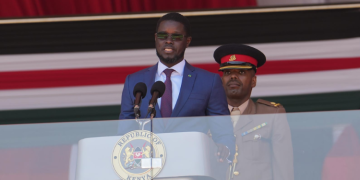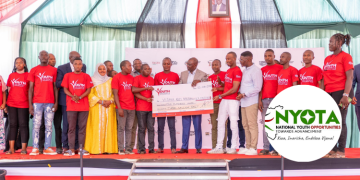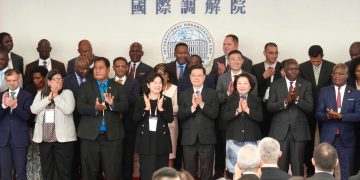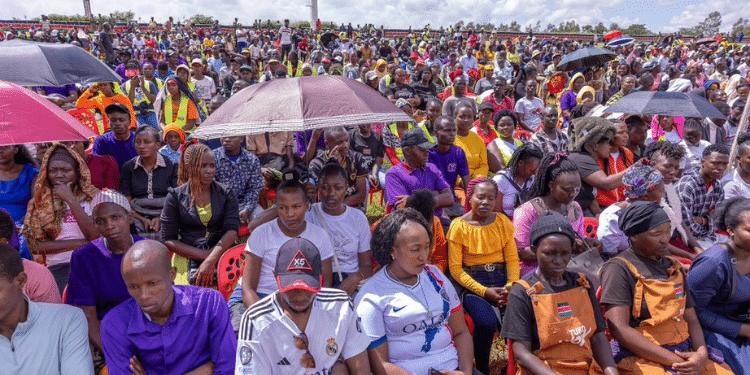Kenya is on the spot after a new report by the International Labour Organization (ILO) exposed widespread exploitation of foreign workers within the country.
The report has revealed that despite strong labour laws on paper, migrant workers in Kenya, especially women in domestic work, continue to suffer abuse, wage theft, and even sexual violence, with little or no access to justice.
Kenya serves as a destination and transit country for both labour migrants and refugees, primarily from African nations, particularly those in East Africa, hosting approximately 300,000 migrant workers according to a 2019 report.
However, the brief highlights that foreign migrant workers, especially from neighbouring East African countries, are frequently viewed through a security lens in Kenya.
Migrant Women Are Under Attack in Kenya
Women, who commonly work as domestic workers, face wage theft and are sometimes evicted from homes by abusive employers, only to end up on the streets, where they risk further victimization, including rape or coercion into sex work.
“Female migrant workers from neighbouring countries often work informally as domestic workers and suffer abuses from their employers, such as wage theft and being ‘chased out’ of their homes.
“As a result, they may end up on the streets and become further victimized, often facing rape or being forced to trade sex for shelter,” the report states.
In Nairobi, for example, male migrants in the informal sector are often criminalized by law enforcement due to perceived links with terrorism.
“Male migrant workers from other East and Horn of Africa countries working in the informal sector in Nairobi (interviewed for the Report), described being criminalized by law enforcement, likely due to the security context surrounding terrorism,” adds the report.
Also Read: Kenya Starts Exporting Workers to Russia Under Ksh115,000 Salary
Migrants Criminalized in Kenya
Although both male and female migrants face rights violations, women are disproportionately affected due to the nature of their work and the invisibility of domestic labour.
The ILO brief reveals that female migrant workers frequently experience physical, sexual, and psychological abuse by employers. When they flee abusive homes, they are exposed to heightened vulnerability, yet the system offers them no refuge.
At the same time, government support is minimal. Migrant workers are largely unaware of their rights and complaint mechanisms.
Even those who attempt to file complaints, the brief adds, rarely get a remedy. Labour officers and courts lack the capacity and resources to handle the caseload, and coordination between institutions is almost non-existent.
The ILO also highlights Kenya’s failure to provide alternative legal pathways for migrant workers in irregular situations.
Instead of offering regularization options, the government often resorts to arrest and deportation.
“Detention should only be used where a migrant worker has committed a serious criminal offence, and immigration detention, especially of women migrants, should be viewed as a systemic human rights issue,” the report notes.
In addition, the organization criticizes the deletion of Section 86 of the Employment Act in the proposed Labour Migration Bill, which currently allows migrant workers to file complaints through labour officers or the Employment and Labour Relations Court.
Also Read: Trump Offers Kenyans and Other Immigrants Ksh130,000 to Leave US; How to Apply
ILO Sends Message to Kenya
The ILO policy brief, based on empirical studies and stakeholder consultations conducted in early 2024, explains that the law states that all workers, regardless of immigration status, have the right to equal protection under labour laws, section 5 of the Employment Act.
Additionally, the law defines a migrant worker as one who is “lawfully in Kenya,” effectively excluding irregular migrants from justice mechanisms.
However, the proposed Labour Migration and Management Bill, 2024 threatens to entrench this exclusion further by defining ‘migrant worker’ as a Kenyan citizen, omitting any protections for foreign workers.
The ILO urges Kenya to align its policies with international standards, including Article 9 of the ILO Migrant Workers (Supplementary Provisions) Convention, 1975 (No. 143), which Kenya has ratified.
The Convention mandates that migrant workers, even in irregular situations, must be treated equally and given access to justice.
The International Labour Organization (ILO) concludes that despite the presence of laws and international commitments, Kenya’s labour migration system does little to protect foreign workers on its soil.
Follow our WhatsApp Channel and X Account for real-time news updates.



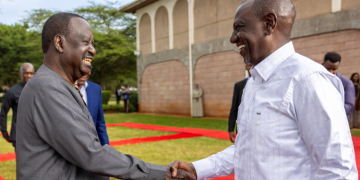

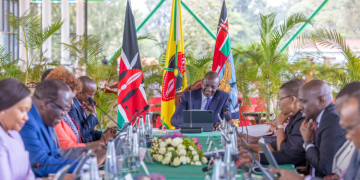
![President Ruto Address During Mashujaa Day And How He Honored Raila [Full Text Speech] President Ruto Address During Mashujaa Day And How He Honored Raila [Full Text Speech]](https://thekenyatimescdn-ese7d3e7ghdnbfa9.z01.azurefd.net/prodimages/uploads/2025/10/ruto-mashujaa-address-360x180.jpg)
